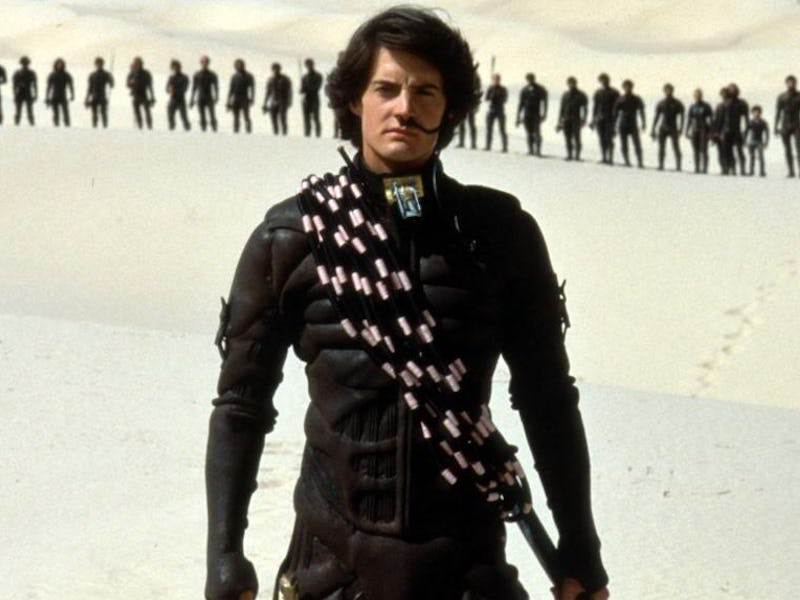Legendary Pictures Could Make Frank Herbert's 'Dune' Epic Again
As long as it doesn't screw it up again.

Legendary Pictures, the production company responsible for Interstellar and Pacific Rim, just acquired the rights to bring Frank Herbert’s beloved space-epic Dune back on screens. It’s not clear yet whether Legendary will make Dune into a new film or build it into a TV show, but either way, there’s a huge amount of thematic, aesthetic, and cultural history surrounding the monumental project. So how will a new version distinguish itself? And is it even possible to be faithful to the source material?
Deadline Hollywood already suggested the challenge of adaptation. Reporting on the news, Anita Busch wrote: “To do the book justice, it actually needs more than one film.” While this is vaguely true enough, it certainly depends on what is meant by “justice.” Because of it’s sprawling scope, heavy religious and political themes, and sheer numbers of years which pass in the novels, the fact that Dune has been adapted at all, much less more than once already is totally a minor miracle.
Speaking in defense of the 1984 David Lynch version of Dune, SF legend Harlan Ellison put it like this: “It was a book that shouldn’t have been shot. It was a script that shouldn’t have been written. It was a directorial job that was beyond anyone’s doing … it was a production that could not possibly be marketed … it looked like it insulted its audience … and yet the film was made.”
For better or for worse, Lynch’s version of Dune is what most people think of — visually, at least — when the concept of the film is broached. The iconic black-rubber “stillsuits” worn by Paul Atreides and others aren’t faithful to the book version, but they “feel” more Dune-esque than the ones worn by the cast of the of the Sci-Fi Channel’s TV mini-series in 2000. In almost every way, that forgotten adaptation of Dune is worse than the Lynch version, even though everything, from the character appearances to the costumes, are technically more faithful to the novel.
And then there’s the near-myth-level of the never-filmed Alejandro Jodorowsky version of Dune, which for many, many complicated reasons never was completed. Not that Jordorwsky’s version of Dune would have been faithful, either. In the documentary Jodorowsky’s Dune, the eccentric director admits he’s never read Dune and jokes with his script, “I was raping Frank Herbert … but with love.”
With all this artistic influence in Dune’s past, it’s impossible to believe these previous adaptations — even uncompleted ones like Jordorwsky’s — won’t have some influence on the new Legendary version. Tonally, the novel also doesn’t present a clear black-and-white line of a political allegory. As Muad’Dib, the protagonist Paul Atreides leads what can easily be described as an outer-space jihad. But, it’s a jihad for the good guys, right? It’s easy to see why adapting this novel has never been easy.
Obviously, at this point in the development, there’s every reason for a hopeful fan of the novel to believe Legendary will finally “get Dune right.” But, getting Dune 100 percent “right” might be impossible, because knowing what to keep and what to throw-out from previous versions just isn’t clear. Plus, the way big science fiction epics are made in the 21st century almost always airs on the side of playing things “safe.” But, Dune has never been a “safe” concept to to begin with. How does a multi-million dollar Hollywood movie keep the novel’s edgy roots? Will the new Dune be a mind-blowing new kind of science fiction movie? Or, more likely, it’ll be a nostalgia-driven venture that somehow pays homage to all of its previous iterations, complete with a cameo from Kyle Maclachlan
Either way, a new Dune is coming, because this story — like the spice that dominates it — must “flow” through the zeitgeist once more.